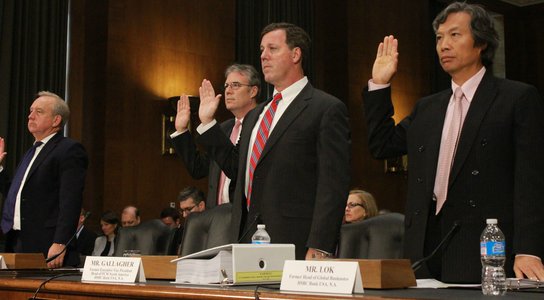Today new rules come into force that require banks in the UK to name a senior executive who will be held personally responsible for their bank’s efforts to prevent corrupt officials laundering their ill-gotten gains. This is something that Global Witness has long campaigned for.
The often-ignored truth is that banks play an
integral role in enabling corruption by allowing corrupt officials to move
their funds, and it’s one of the big reasons why poor countries stay poor.
Nigeria is one example of the cost of corruption: according to research
commissioned by the Nigerian government, the country and its citizens have
missed out on at least $35 billion over 10 years due to corruption in the oil
industry. This represents more than a year of government spending. Just one
tenth of this total, or roughly $3.5 billion, could have been used to give a
basic education to the 5.5 million girls in Nigeria who currently cannot
afford to attend school. As a 2010 report from Global
Witness report demonstrated, some of
the proceeds of corruption in Nigeria ended up in UK banks.
Our 2015 report, Banks and Dirty Money, revealed that while laws in most
countries require banks to do a range of checks to detect the proceeds of the
corruption, many banks fail to uphold them. As a result banks are leaving
the door wide open for corrupt people to launder their funds.
A major cause of this has been skewed incentives for senior bankers.
Banks stand to make a lot of money when taking embezzled and other illegally
earned money, yet face little downside if they are caught out. Senior
bankers who have oversight of the wrongdoing almost never face personal
consequences. The new regime tries to correct this by giving the regulator
powers to go after senior managers who haven’t done enough to stop the flow of
dirty money through their bank.
While the government has watered down its original rules, the new Senior Managers
Regime is a good first step to end the lack of accountability for bank
wrongdoing. Now the regulator must actually use its new powers and send a
signal to banks that helping corrupt officials, and other criminals, move their
money is unacceptable.


